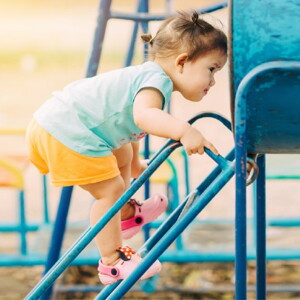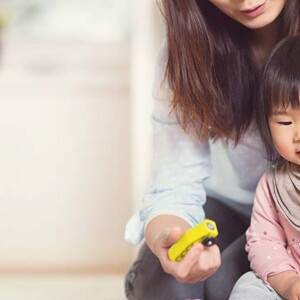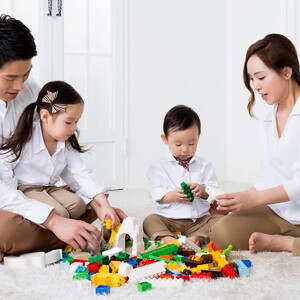Parenting Tips and Articles

Parents' guide : What you can say to your kids to promote a growth mindset for lifelong learning
Parents can nurture their children's growth mindset and love for lifelong learning by paying attention to the way they communicate, interact, and respond to their children.

Planning for Birth
Plan the details of your childbirth to ensure you make the best and safest options for your child, as well as get the best support from your doctor and family.

Get your child’s gut health on track by following these 6 simple steps!
A child’s gut health says a lot about their overall health.

Maintaining gastrointestinal well-being during pregnancy
Understand the risk factors and symptoms of gastrointestinal issues that mums may experience during pregnancy, and what mums can do to get sufficient nutrients without digestive discomfort.

Food Allergies
Diarrhoea, vomiting, itching, tightness in the chest, and swelling of the mouth are signs of food allergies and reaction.

Expert tips to ensure your child’s all-round development
Parents can help stimulate their children's physical, mental, emotional, and social development by providing them with a nutrient-rich diet and positive intervention to encourage interaction.

5 Common conditions that children suffer from and what parents can do to help
When babies constantly cry and parents cannot figure out why, there are several factors that parents can observe to ensure that they are not suffering from common ailments like diarrhea or jaundice

11 Simple Ways to Promote Cognitive Flexibility in Children
Help stimulate children's cognitive flexibility by encouraging them to think, speak, and express their feelings. Self-talks, toys, books, routines, and pretend play can also help them grow.

Physical Play and Mental Development
Encourage children to engage in physical activities to prepare them for the challenges of school.

4 Simple activities to boost your child’s cognitive development
Help your children progress in their physical development and motor skills by engaging in play and providing a safe ground for them to explore, identify objects, solve problems, and think logically

7 Interpersonal Skills Your Child Must Have to Succeed in Life
Future-ready children are well-rounded and have good social skills like verbal and non-verbal communication, listening, negotiation, decision-making, problem-solving, and assertiveness.

Going back to work after maternity leave? Keep these 5 things in mind…
For working mums, juggling motherhood and work life may be overwhelming. By planning, practising these tips, and taking a day at a time, you'll be able to manage your day and emotions better.

How to Raise A Lifelong Learner Through Reading: 11 No-Fail Tips
Raising little ones as continuous learners helps their cognitive health, communication skills, confidence, and socialisation skills.

Jittery about sending your child to nursery or kindie? Here’s how you should prepare
To prepare your child for a good first day at the nursery or kindergarten, use pretend play to introduce the idea of school, and pay attention to your child's worries and non-verbal communication.<

What nutrients do babies need for brain development?
Your growing child's nutrient intake for early cognitive development is important to ensure that he or she has good mental performance, memory, and intelligence in the long run.

The Stages of Labour Explained
Get a detailed plan and more information about the birthing process to best prepare yourself to manage potential physical pain and emotion during the different stages of childbirth.

Q&A: Toddler language, thinking & learning development
Develop your toddler's basic language skills by using songs to increase their vocabulary. As for social and observation skills, use everyday items like measuring tools for them to play with.

Prebiotics boost your toddler's immune system – here's how
Both probiotics and prebiotics can boost children's immunity and restore the balance of bacteria in the gut.

Q&A: Cool tips on having a perfect playtime with your little one
Playtime enables children to practice different skills, such as linguistic, social, and motor skills. Creativity and imagination exercised during playtime helps to stimulate mental development.

Supportive Parenting: Helping Children Realize Their Potential
Harness your children's potential by guiding, nurturing, and supporting them. By allowing your children to read and be physically active, it helps to encourage their imagination and creativity.

Track your child's growth and give them the right nutrition to thrive
It is important to keep track of children's developmental milestones as they indicate their overall health and wellbeing.

5 Qualities of an Exceptional Child with a Thirst for Learning
Help your child become an exceptional child by encouraging him or her to be curious, confident, and persistent, have empathy and good communication skills, and to think creatively.

Building the Memory Muscle: How to Help Your Child Improve His Memory
Build and strengthen children's memory by engaging their senses and sticking to routines to help them focus, retain information, and learn new skills or talents.

Parent Detectives: How Well Do You Know Your Child?
By creating a family culture of respect, tolerance for diversity, and teamwork, parents allow children to be exposed to multiple activities and stimulants to maximise their potential.

